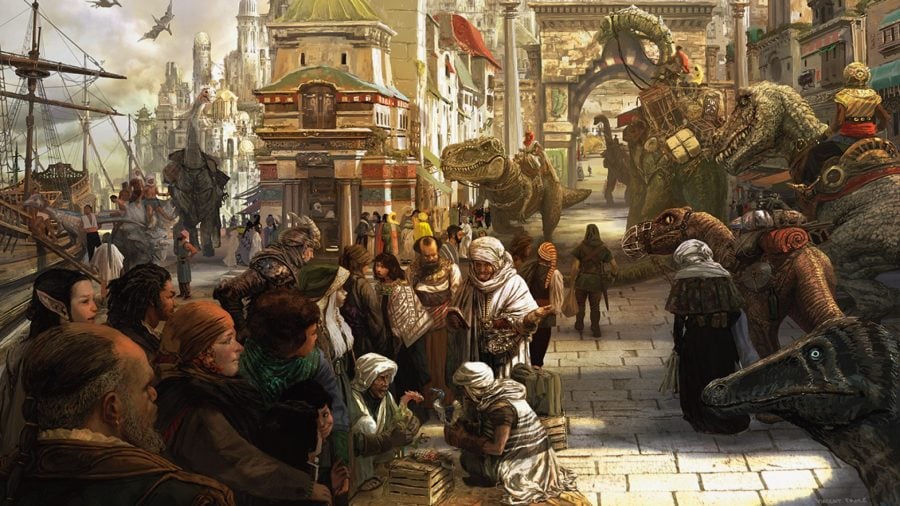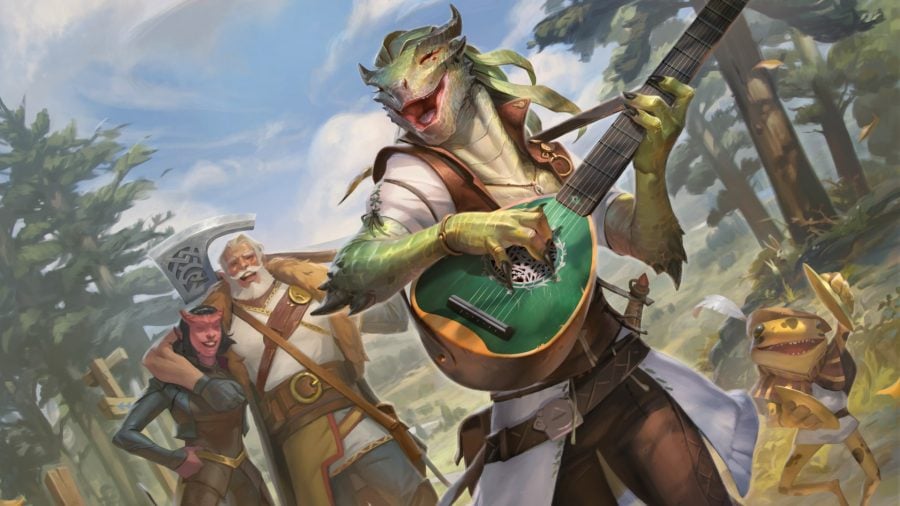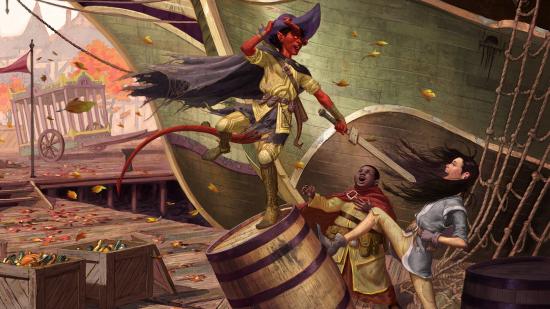Do you need to roleplay in Dungeons and Dragons? On the face of it, it sounds like a silly question. It’s an RPG. A roleplaying game. A roleplaying ga- You get it. You’re piloting a character through an adventure. If you don’t take on the role of that character, at least to the extent of making decisions for them – when to fight, when to flee, when to surreptitiously stash a newly found treasure up your jumper and keep it a personal secret – that adventure isn’t going to happen. Your newly formed party will never get up from the table and leave the tavern.
But, increasingly, when discussing how to play Dungeons and Dragons, fans use a definition of roleplaying that’s rather specific. Many now have a default vision of roleplaying as something comparable to acting. Taking on the mannerisms of a character. Doing their voice. Making decisions as them instead of for them.
In part, high profile ‘Actual Play’ D&D campaigns like Critical Role, Children of Earte, or Legends of the Multiverse are the reason for this. These tend to thrust the roleplaying, acting aspects of Dungeons and Dragons into the spotlight – primarily because that’s the best way to make the game entertaining for viewers. Since this is the main way people get to actually see or hear D&D being played, it’s only natural that this version of roleplaying is one that’s taken root.
But the most successful Actual Play campaigns usually feature comedians, professional actors, or voice actors. Their players excel at putting on accents, depicting mannerisms, coming up with catchphrases – in other words, portraying an entirely different person, body and soul. This is a very particular skill set, and it’s one that a ton of people just don’t have.

It’s also the case that while the players in Actual Play campaigns are having fun playing D&D, they’re also – to a greater or lesser extent – putting on a show. The kind of roleplaying that takes place in these games doesn’t represent the average D&D game, because the average D&D game is not watchable. To briefly test this hypothesis, try and explain your last session to a non tabletop RPG-initiated friend or family member, and see how quickly their eyes glaze over.
You’re back; you’ve tried that? It was quick, wasn’t it?
The ‘acting’ sort of roleplay can certainly be fun, and there’s plenty of reasons to give it a try. It can create fantastic moments at the table – usually funny ones, but occasionally, if everyone’s really into it, more heartfelt, moving scenes. There’s other benefits to roleplaying too. It can boost confidence, improve social skills, and as you practise you’ll actually become better at acting. And you should remember that there’s no obligation for you to be ‘good’ at something you’re doing just for fun, anyhow.
But the assumption that roleplaying is a requirement for D&D represents a major barrier to entry. The thought of sitting with a group of friends (perhaps in costume) doing silly voices, is one that fills many people – often people who would definitely otherwise thoroughly enjoy the game – with cold dread.

It’s a mistake, therefore, to require in depth roleplaying at your table, and while most people realise this, some DMs slip into the habit nonetheless. If you’re playing a charismatic character, and decide to sweet talk the guards, you can have fun attempting to roleplay the dialogue, but it shouldn’t be an expectation.
In this scenario, talking your way out of a sticky situation is something your character should be able to do, even if you yourself would be more likely to mumble meaningless gibberish and pray that you’re hit by a freak meteor. A DM demanding you come up with dialogue and act out the scene to succeed makes as much sense as requiring the Rogue 5e player to sneak around the living room or the Wizard 5e player to call forth lightning.
When playing D&D, it’s perfectly valid to report your actions in third person: ‘My character tells the king about the ambush’ if that’s what you and your group are more comfortable with. But it’s equally valid to act out every scene if you’ll have a better time doing so. It’s also not as jarring as you might think to have different players at the same table using different levels of roleplay. With a little extra discussion beforehand, you can make it work.
So how important is roleplaying in D&D? The most truthful answer is: it’s as important or as meaningless as you want it to be. There’s a reason why there are almost zero roleplaying rules built into D&D 5e. It’s an RPG that can be played entirely differently by different people. It might be a pure strategy board game for one group and a combat-free roleplay-athon for another. That’s part of its charm!
